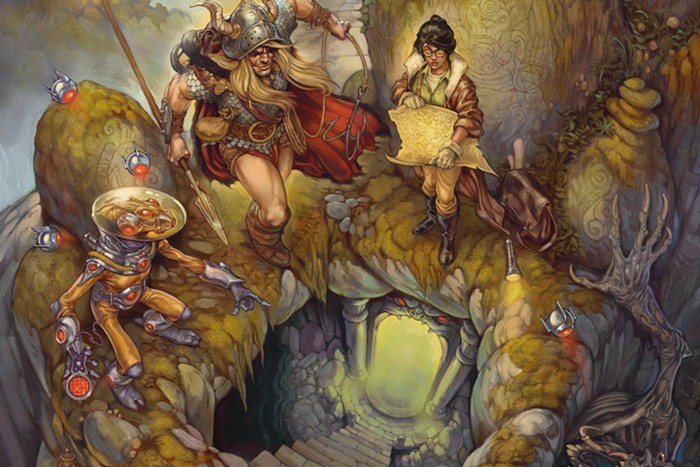
IS:
The only Genius nominee to have been sued by Harlan Ellison.
TURNED DOWN:
A job at Marvel Comics three years before founding Fantagraphics.
ONCE:
Asked Spawn creator Todd McFarlane, "If you respect writing... wouldn't you try to make yourself a better writer?"
I say this a lot, but that's only because it's so important, I can't emphasize it enough: Fantagraphics is the best publisher of comics and graphic novels in the United States, maybe the world. And Fantagraphics exists because of Gary Groth. It was his idea, at a time when comics in the United States were a disposable medium for bored teenage boys. Over the years, he's built it into an imprint that has become synonymous with quality comics. Every book with Groth's name in the indicia reflects his aesthetic. As far as comics publishers go, Fantagraphics doesn't pay its authors the most in the business, but cartoonists stay loyal to the company for Groth's no-bullshit editing, which helps artists develop their work.
Groth is more than "just" an editor and publisher. His essays for Fantagraphics' comics criticism magazine, the Comics Journal, are intelligent, passionate, and deeply informed in comics history. As a cultural critic, he's never forgotten his punk roots as he rages against conventional wisdom and mediocrity:
My only interest in Superman, marginal at that, stems from his continuing presence as a symbol of banality and infantilism in the history of the American comic book. The character has emerged, after 50 years of relentless marketing and hype, as a legitimate literary creation. Fuzzy-minded liberals confer literary status upon the character because of the economic injustice perpetuated against its creators, Jerry Siegel and Joe Shuster (an injustice for which DC Comics should be rightly castrated); conservatives adore the character as a patriotic manifestation, as American as mom, apple pie, and selling arms to the Contras; the usual gang of academic lintheads and popcult apologists display their usual confusion of values by mistaking something of social interest for something of artistic significance. But the American mind, forever in a state of self-induced hysteria and blissful deceit, must infer Greatness from commercial success. Hence, even a mind as agile as Harlan Ellison's can be seduced into making one of the most foolish and excessive statements of his career when he tells us that Superman is a creation of literary greatness because "one of the unarguable criteria for literary greatness is universal recognition..." And McDonald's is haute cuisine because it's sold more than 8 billion hamburgers.
Next year, Fantagraphics will publish a compilation of Groth's criticism; he's currently digging through more than 200,000 published words of his own writing. And Groth has established a third—or is it fourth?—career as an interviewer of the cartoonists who toiled, often anonymously, during the birth of comics, creating a valuable primary source for an art form whose history was ignored, even reviled, until about 15 years ago.
This spring, I interviewed Groth and other Fantagraphics editors at Emerald City Comicon. I asked Groth, who used to have a reputation as a firebrand, if he felt less angry than he used to back in the 1980s and '90s, when he raged against banal mainstream comics culture at every opportunity. Groth explained that Fantagraphics books could be found in most bookstores nowadays, and that comics have been accepted as literature by all but the fussiest of holdouts, so he doesn't have as much to argue about. I asked him, "Are you declaring victory right here on this stage, Gary Groth?" Groth demurred, saying that there was always more work to do, but it was clear to everyone that, yes, the century-long fight for the soul of American comics is over, and Gary Groth won. ![]()




















